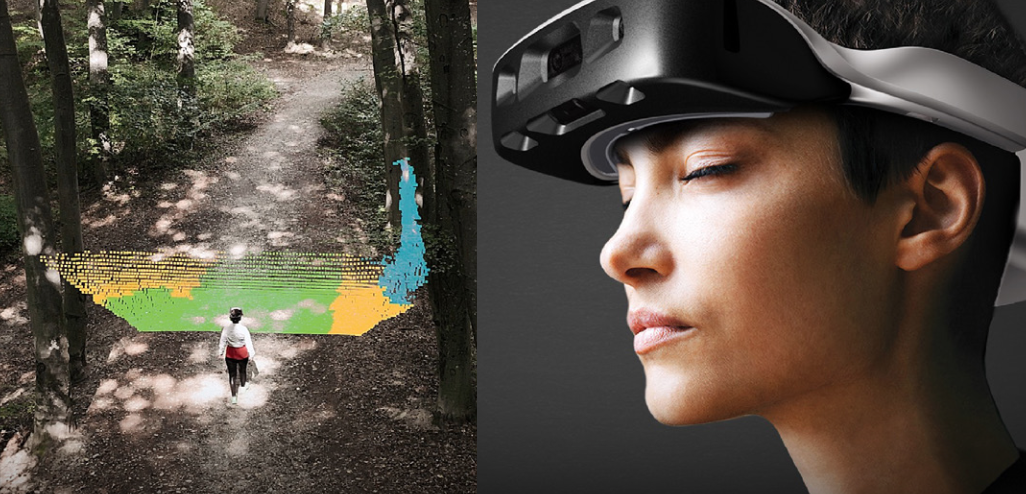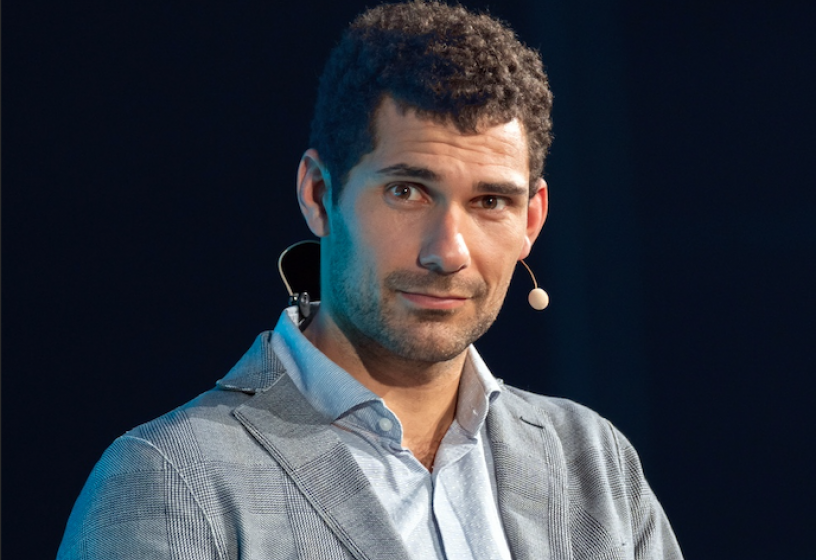Interview with Cornel Amariei
When AI Empowers the Blind to Navigate Independently

The invention, which will soon be launched on the market, is already generating a lot of buzz. The idea is bold: glasses that enable visually impaired people to move around independently. This device, based on AI technology inspired by autonomous driving, has the potential to transform the lives of millions. Meet Cornel Amariei, its remarkable inventor.
How did the idea for Lumen come to you?
It is a combination. I come from a family where everyone except me has a disability, although statistically, that is almost impossible. This particular situation deeply shaped my life, both positively and negatively. I know what it is like to struggle, but those struggles have also been motivating. I grew up with a particular sensitivity to the challenges faced by people with disabilities, and this has deeply motivated me to take action. The specific idea for Lumen started as a random conversation with a friend. The idea of "glasses for the blind" came to us, but when we looked into it, we found that nothing like that existed. Besides, we realised the scale of the issue; there are 300 million people with severe visual impairment worldwide, but only 28,000 guide dogs.
Given that guide dogs are extremely costly and complex to care for, we decided to create a technological alternative. And here we are, four years later, with Lumen. The idea was just a spark. Many people have ideas. What matters is transforming an idea into action, and that is what we committed to doing.
How do these glasses work?
Basically, the glasses replicate what a guide dog does, but in a unique way. If you use a guide dog, it helps you avoid obstacles, stops you at intersections, and can even guide you home. It does this by pulling on your hand to direct you. Lumen glasses work similarly but through haptic feedback on the forehead, that is to say the use of touch and vibrations to communicate physical sensations to the user. In short, it guides you by ‘pulling’ your head instead of your hand. It is an intuitive way to help you navigate safely.
From a technical perspective, it is like having a self- driving car on your head. The glasses can recognise sidewalks, roads, crossings, and obstacles indoors and outdoors. In four years, our team built something entirely new: pedestrian autonomous navigation. This self-driving technology gives users the freedom to navigate independently.
How do you use the artificial intelligence to make your glasses work?
What we do is only possible because of AI. A lot of people overuse AI, but for Lumen, AI is essential. We use a clever combination of classical computer vision, classical programming, and AI to make the glasses work. Let’s take an example, a robot usually considers a place safe if it is flat, like a calm lake. But AI allows us to differentiate a lake from a road, even if both are flat. That is the kind of crucial information AI brings.
Our glasses rely heavily on images captured by six cameras, which AI then processes to understand the environment in real-time. It identifies obstacles, even if you are indoors or outdoors, which is actually more complex than you would think. There is an enormous amount of information processed and the glasses can also talk to you. We are providing guidance, but just like with a guide dog, it is the user who decides how to act.

"Our glasses rely heavily on images captured by six cameras, which AI then processes to understand the environment in real-time"
Did you face challenges during the technical experiments?
We started developing in Romania, and unlike roads for cars, which look pretty similar everywhere, pedestrian paths are extremely varied. In one city alone, sidewalks can look very different, and in rural areas, they often don’t exist. For Lumen to work universally, we had to gather data from over 30 countries, including sandstorms, snowstorms, in various urban and rural environments. We even tested in Japan, where the sidewalks look totally unsimilar. That difference initially confused the glasses, so we had to collect local data to improve its accuracy. Creating something that can work in such diverse environments was incredibly challenging, but we accomplished it.
What about the cost? Will this technology be accessible?
The glasses are launching in the EU soon, priced between €5,000 and €10,000 for the first generation. This is already much cheaper than training a guide dog. We expect to bring the price below €1,000 within the next four years. The technology will evolve, becoming cheaper and more accessible with each generation. Imagine a device that is as simple as a headband. We want to make it affordable not only in Europe and the US but also in places where income levels are lower.
What impact do you hope Lumen will have on the lives of visually impaired people?
Better mobility means improved access to education, employment and a fuller social life. Right now, blind people mainly rely on family or friends to explore new places. Guide dogs are so rare and expensive that most people don’t have one. With Lumen, we aim to provide a new level of freedom for visually impaired people. Imagine being able to go to work or a new café without needing a companion. Once we have more than 28,000 of our devices on the market, we will have surpassed the reach of professionally trained guide dogs – a milestone in itself.
Currently, a blind person can’t tell a guide dog, "Take me to Starbucks," or use GPS effectively. Google Maps, for instance, might say to turn right, but that could lead you into a wall due to GPS inaccuracies. We are offering a more precise, reliable solution. I hope Lumen will open up new opportunities for visually impaired people to live and work more independently.
Innovation with purpose is your credo... isn't it?
Absolutely. When I was younger, I would say that innovation for the purpose of innovation is bad, innovation for the purpose of money is worse. Innovation must bring meaning. That's what I always said. It is about seeing a problem and coming up with a solution which actually solves that problem. That's what is really, really important.
The problem I see is how the business world operates: money comes first, that means a solution is created to generate profit, and only later do we consider the problem it solves. While this approach can make money, it is not scalable. Solutions should address real problems, not the other way around. Unfortunately, most businesses work the opposite way.
Finally, what advice would you give to young innovators looking to create high-impact technology?
Honestly, it is harder than you can imagine. If I had known how difficult it would be when I began, maybe I wouldn’t have even started! But here is the thing: resilience is key. I have observed that the people who succeed don’t quit, no matter how challenging things get. For us, the mantra is ‘make meaning, not money.’ We don’t just want to build something to sell. We are solving real problems that affect real people, and this is what drives us. If you have that purpose and keep pushing, you can achieve things that once seemed impossible.
Cornel Amariei is a serial inventor, author, and entrepreneur, known for founding .lumen. He was born in a family where both of his parents have locomotive disabilities and his sister mental disabilities. But rather than limiting him, these modest and different beginnings, fueled his curiosity. With over 30 patents, he is a prolific inventor. He became the first Romanian to be nominated for Forbes 30 under 30 Europe, to receive the Ten Outstanding Young Persons of the World award by JCI, and to be a laureate of the Global Business Hall of Fame by JA.
Also to read in the dossier ''AI, Encouraging Techno-Awareness'':



